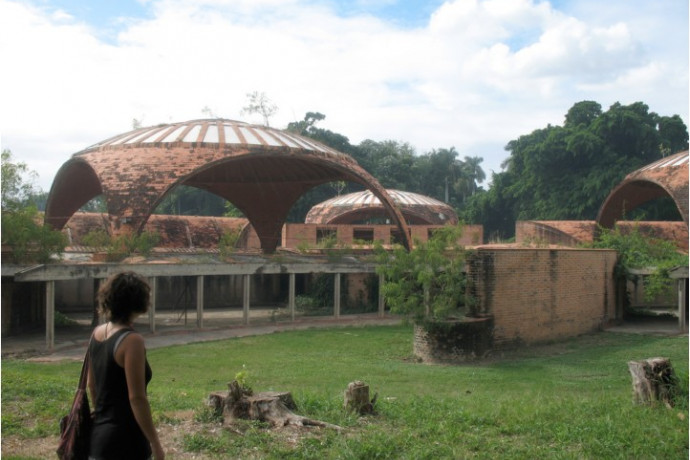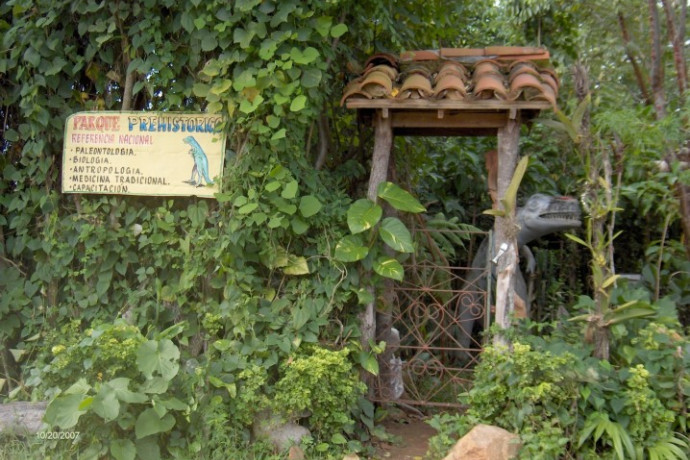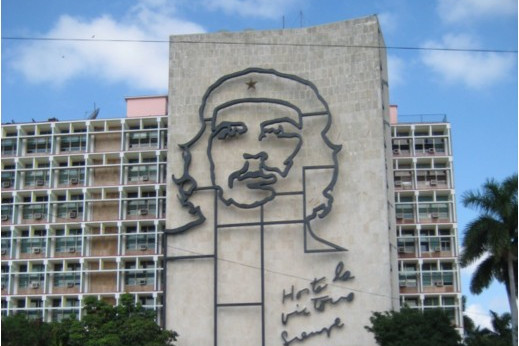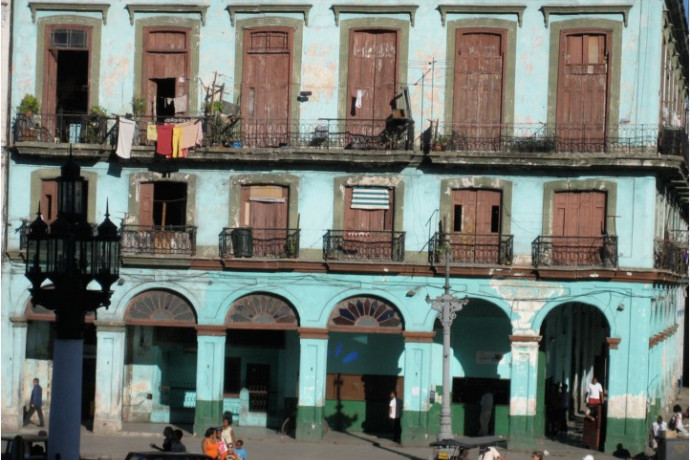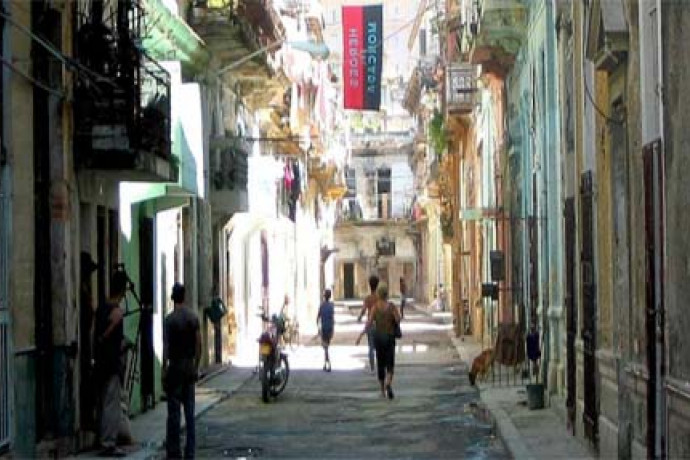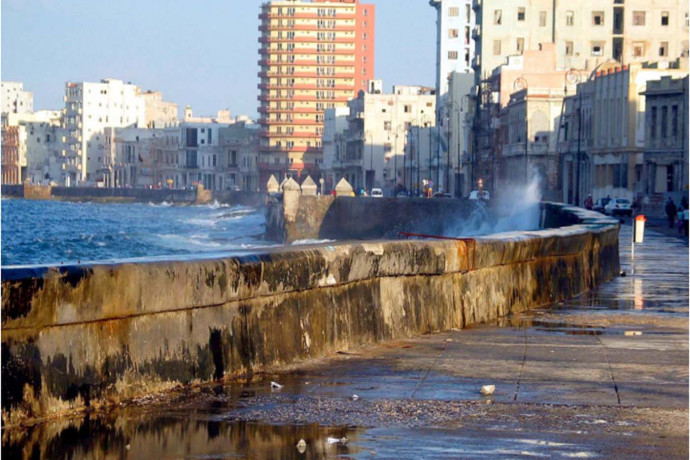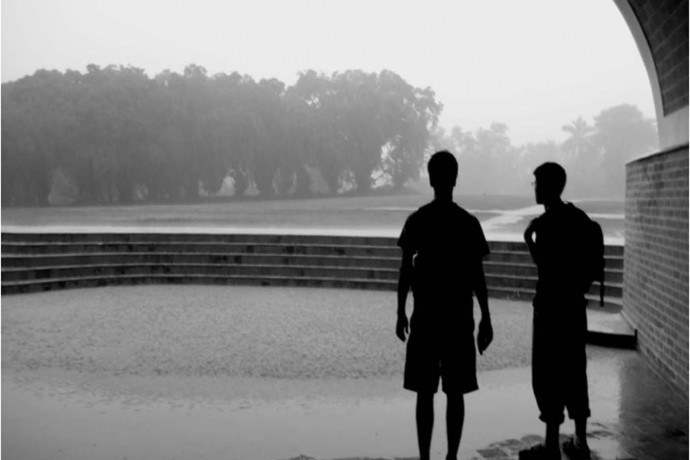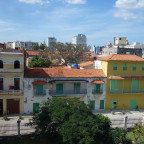Cuba: Havana
| Program Snapshot | |
| Semester: | Spring |
| Offered: | Spring 2025 |
| Estimated Dates: | Mid-February to late May |
| Program Focus: | Regional Area Study with Language Component |
| Prerequisites: |
HIST 348: Modern Cuba |
| Housing: |
Host Families |
| Spring 2025 Program Leader |
Elliott Young |
Program Design
Academic study focuses on the study of the construction of the Cuban nation with emphasis on issues of race, slavery, socialism and relations with the U.S. The program will be based at the Instituto Superior de Arte (ISA) and will include excursions to Santiago, Trinidad and Pinar del Rio. Students live in homestays.
Academics
Requirements Fulfilled:
General Education - This program fulfills the Global Perspectives general education requirement for students who successfully complete 8 or more semester credits. IS 282 fulfills the Creative Arts general education requirement.
Minor Requirements: This program fulfills the overseas study requirement for the Latin American Studies minor.
Credits: 16 credits (4 courses)
Curriculum: PLEASE NOTE: This curriculum is in the process of being updated. New course information will be posted as soon as it is available.
IS 282: Art and Culture in Modern Cuba (4 credits)
This course will review the major trends and movements in Cuban music, film, dance, and plastic arts in the twentieth century. The course will not only teach students how to appreciate these cultural expressions, but it will situate these movements within the context of the evolving Cuban society.
SPAN XXX: (300 Level Spanish Credit) Spanish Language (4 credits)
The focus of this class will be on comprehension and oral skills. Review and perfection of Spanish grammar, and literature will also be integrated as part of the curriculum, but the class would seek to raise the students’ level of Spanish to facilitate their understanding and participation in the other classes that will also be taught in Spanish.
IS 280: Contemporary Cuban Voices (4 credits)
This course will introduce students to a wide variety of contemporary Cuban intellectuals, artists and writers through weekly guest lectures. Students will also be asked to process their experiences and discuss the guest lectures.
IS 281: Community-Based Research (4 credits)
This course will introduce students to basic oral history and ethnographic methodologies. Students will develop field research projects through internships and participant-observation. Their projects will culminate in a 15 page field-research paper.
Cost
2023-2024 Fee Breakdown*
Total Fee (includes Tuition, Program Fee, and Health & Wellness Fee): $39,385
Tuition: $30,958
Program Fee: $8,390
Health & Wellness Fee: $37**
Included in the program fee are room/housing, board/meals, and administrative fees. Not included are airfare, passport and visa expenses, primary insurance coverage, photographs, books, immunizations, and incidentals.
*Fees are updated every February for the following academic year.
**The Health & Wellness Fee supports the operations of Wellness Services staff in delivering pre-program orientation services, as well as in providing health-related consultation regarding participant health needs. All students in the College of Arts and Sciences pay a mandatory fee of $37 per semester.
Stipend: Students will receive a stipend to cover the cost of meals and transportation costs not covered by the program fee.
Estimated Airfare (Round Trip PDX to HAV): $400-$600
Estimated Health Insurance Fee: $1,943.50
All students participating in overseas programs are automatically enrolled in iNext, a supplemental travel insurance program. The fee for iNext is covered in the program cost. However, students are also required to have comprehensive health insurance during their time abroad. All students participating in overseas programs, both abroad and domestic, are automatically enrolled in the College’s student health insurance program. Similar to a regular semester on-campus, students participating in overseas programs may waive enrollment in the student health insurance program if they have other comprehensive health insurance (e.g., through a parent, guardian or employer) that 1) provides coverage for them in the geographic region in which they will be studying and 2) includes mental health benefits. Click here for more information regarding health insurance & overseas programs.
Program Preparation
Application Process: Applications are due one year before the start of the program.
The semester before the program, students who have been accepted will meet regularly for orientation. This orientation is meant to prepare the students for life in Havana by exploring literature and culture, and provides an opportunity for students to learn more about the logistical details of the program.
For more information about the application process, click here.
Country-Specific Health Information: Click here to view specific health information for people traveling to Cuba.
State Department Country Information: Click here to visit the State Department’s Cuba page.
Cuba, Havana
Blog Posts
Cuba Reflections
Arriving in Havana
Overseas and Off-Campus Programs is located in room 206 of Albany Quadrangle on the Undergraduate Campus.
MSC: 11
email overseas@lclark.edu
voice 503-768-7295
fax 503-768-7300
Director Blythe Knott
Overseas and Off-Campus Programs
Lewis & Clark
615 S. Palatine Hill Road MSC 11
Portland OR 97219
